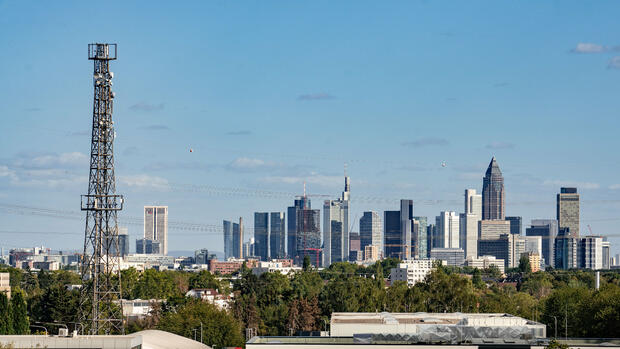Berlin, Frankfurt The billion-dollar market for digital infrastructure continues to grow. The Hamburg-based investor Digital Transformation Capital Partner, DTCP for short, has now collected one billion euros for projects in Western Europe. “This sum is to be significantly increased in the next twelve months,” says DTCP co-founder and CEO Vincente Vento to the Handelsblatt.
Vento expects the digital infrastructure market in Europe to grow strongly – and sees enormous potential. He considers equity investments in the amount of 200 billion euros over the next ten years to be realistic.
The new investors for the “Digital Infrastructure Vehicle II” fund included institutional investors such as Allianz, Blackrock, the former Aberdeen Asset Management, a sovereign wealth fund from the Middle East and a German pension insurance fund. The fund, launched in June last year, will focus on radio towers, fiber-optic lines and data centers.
Deutsche Telekom, for example, had already invested in it before. The investment amount for the individual addresses ranges between 150 and 200 million euros. The target would be eight to ten deals.
In the Netherlands, they have already invested in radio towers and a fiber-optic project. A data center project in Germany will be added soon.
Target return of up to 15 percent
Vento gives investors a net target return of ten to 15 percent, with a term of ten to twelve years.
“We build up the investments over three to four years,” says Vento. At the end of the time, all the equipment will be sold again.
Some of DTCP’s competitors are investing in other infrastructure projects, such as motorways, renewable energies or oil pipelines. Among the more well-known addresses were KKR from the USA, the Swedish EQT and the French Antin Infrastructure Partners.
The DCTP, which manages 2.3 billion euros, thus joins the ranks of well-known investors. They all want to put more than ten billion euros into the networks every year. As a rule, partners are network operators such as Deutsche Glasfaser, which is now part of the EQT Group and wants to invest seven billion euros.
Deutsche Telekom plays a central role
The largest investor in the market is Deutsche Telekom. She wants to invest three billion euros a year alone. In addition, it cooperates with the Regional provider EweTel (investment volume: two billion euros) and the IFM Global Infrastructure Fund (six billion euros).
In total, private investors have announced that they want to expand the fiber-optic network with around 50 billion euros by 2025. These include smaller companies such as DNSNet or One Fiber, but also energy suppliers such as Eon and Vattenfall.
In view of the rising construction and raw material prices, there had been discussions in recent weeks about whether companies might postpone their investment plans.
The Bundesverband Breitbandkommunikation therefore welcomes the commitment of the DCTP. “The announcement is a clear sign that the private sector wants to continue investing,” said Sven Knapp, a member of the Executive Board. “In implementing the gigabit strategy, the Federal Government should: trust in the market and less in support programs.“
With the gigabit strategy, Federal Digital Minister Volker Wissing (FDP) wants to ensure that half of all households will be connected to the fiber-optic network by 2025. By 2030, everyone should be able to use the network.
To this end, the federal government has discussed an efficient funding program in months of struggle with the federal states and the telecommunications industry. With it, the state wants to promote wherever it does not pay off for the economy.
The previous funding is considered too complicated and inhibitory. In the future, an analysis should help in advance to identify economic areas in Germany and thus concentrate the tax money on the unprofitable regions and thus also connect households there. Currently, less than 20 percent of households are connected to the fiber-optic network.
The new funding programme is scheduled to start on 1 January 2023, but has yet to be drawn up and agreed within the federal government. Only then will the government discuss it with the industry associations.
Dead spots and 5G are a challenge
In addition to the fiber optic networks, the state also wants to provide a seamless mobile network of the new generation 5G with funding and its own company. The major network operators have transferred their radio towers to subsidiaries, such as Deutsche Telekom to Deutsche Funkturm or Vodafone to Vantage Towers. Telefónica even sold them.
The energy company Eon is also active and wants to build several hundred radio masts with its subsidiary TowerCo together with the radio mast operator Novec. Eon wants to use the roofs of its own buildings for this purpose.
So far, the area of data centers has been less observed. According to the Internet association Eco, data capacities in Germany have grown by 30 percent from 2016 to 2021 and are therefore of interest to investors.
“Data centers are guarantors for the digital performance, sustainability and sovereignty of Germany as a business and digital location,” emphasizes Eco Managing Director Alexander Rabe. The announced investments would amount to seven billion euros.







